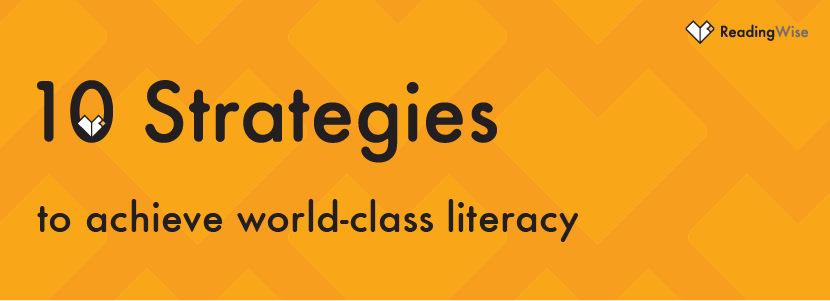
What would it take for almost every child to achieve a good standard of reading and writing?
No one disputes the importance of getting children off to a good start with reading. Teaching them to read well is the key to success not only in mastering language and writing but for other subjects too.
Those who struggle with reading invariably struggle with the rest of their school work and fall increasingly behind as they progress through primary and secondary school. All this is well known to teachers and school leaders.
It is well known to our political leaders too. The Education Secretary, Michael Gove, is reported to be urging Prime Minister David Cameron to include a commitment to end illiteracy in the Conservative manifesto for the next general election.
Is this achievable and if so how? Despite two decades of focusing on the basics of literacy and numeracy and ever greater emphasis on targets, testing and inspection, standards of reading and writing have stalled in England’s primary schools.
According to Ofsted, one in five primary pupils continues to fail to reach the expected level of English in their SATs at the end of key stage 2, just as they did in 2008.
Ministers are right to want to address what amounts to a systemic failure that affects 20 per cent of our children. But have they got their priorities right?
To find out what classroom practitioners think ReadingWise, which runs an interactive software programme designed to help children who do not make the expected progress in reading, conducted a survey of over 500 English teachers and literacy co-ordinators.
Overwhelmingly, these professionals believe the main focus should be on encouraging children to read for pleasure and giving them experience of a wide range of books and other texts.
While most regard phonics as an effective tool for teaching the majority of children to read many do not believe it is particularly helpful for those who struggle with literacy. More than half of teachers in the survey (52 per cent) said they thought the current emphasis on synthetic phonics was either ‘ineffective’ or ‘not very effective’ for helping dyslexic readers while almost four out of ten (38 per cent) believed the same was true for children with other disabilities.
That suggests the Government’s favoured strategy of employing phonics as the principle strategy for teaching all children is letting down the very ones who struggle the most for reading fluency.
Over-emphasis on phonics is killing children’s enjoyment of reading
The survey shows clearly that classroom professionals believe too much emphasis on phonics is killing enjoyment of reading for many primary children and risks putting them off reading for life.
So what’s to be done? We asked the specialists who took part in our survey whether they believed that, with the right resources and conditions, it would be possible for almost all children to reach the expected standard of English (Level 4) by the time they finished primary school. Encouragingly, more than eight out of ten agreed.
To discover more we asked what they thought would be needed to achieve this level of literacy – a standard usually associated with the world’s best education systems.
From the hundreds of comments we received it is possible to identify ten common strategies which, if implemented, could make literacy standards in the UK truly world-class.
The strategies are these:
1. Consistently good teaching - supported by high quality support staff, initial teacher training and continuing professional development.
2. A specialist for every primary school - all primaries should have either a specialist English teacher or the support of a local literacy adviser.
3. Early intervention – struggling readers need to be identified and supported early on.
4. Tailor strategies to fit the individual child – reliance on synthetic phonics isn’t always enough and different children need varied support through targeted interventions.
5. Reading at home – parents should be encouraged to read with their children and support their learning.
6. Effective early childhood development – children and families should be given support from birth onwards by introducing them to books, stories and nursery rhymes.
7. Encourage reading for pleasure - by giving children access to a wide range of books, listening to stories in shared reading sessions and reading aloud.
8. Start formal teaching of reading later - when children are ready.
9. Make creative use of technology - to increase interactivity in the classroom.
10. Trust teachers to deliver – reduce the amount of testing and paperwork and give professionals time and space (and the resources) to teach literacy effectively.
Some of these interventions, but by no means all, are likely to find favour with politicians as the debate about the best way to achieve world-class literacy levels heats up with the approaching election.
Over the next ten weeks, we will be discussing each of these strategies in a series of blog posts. We hope that by airing the views of literacy teachers in this way we can help shape future policy on this vitally important subject leading up to the 2015 election and beyond.









